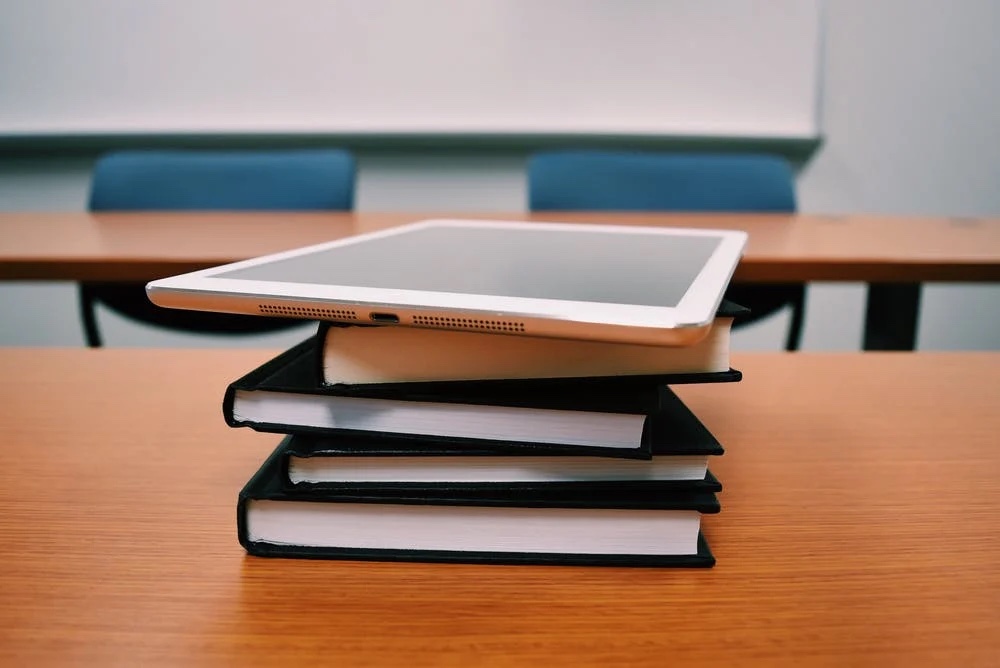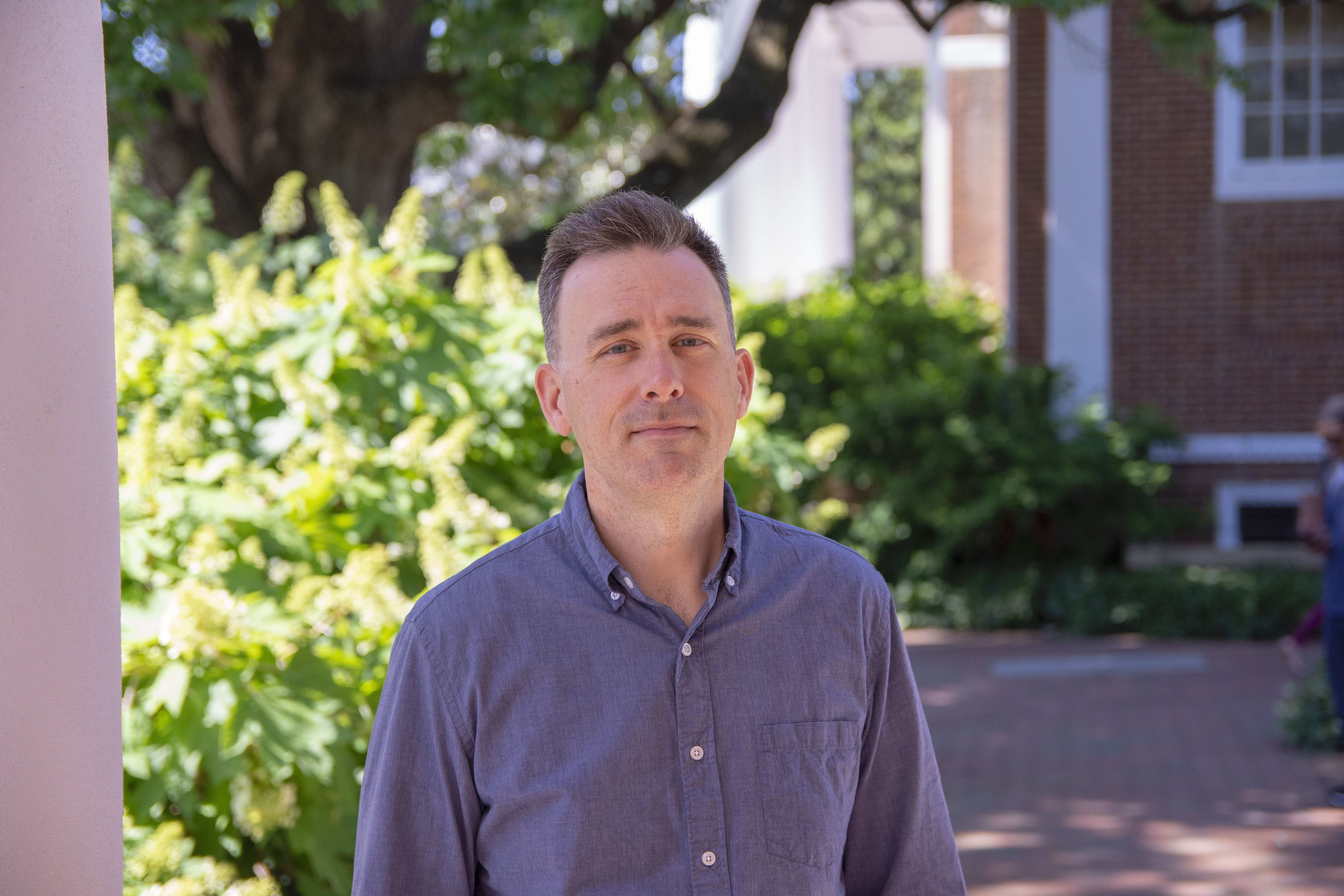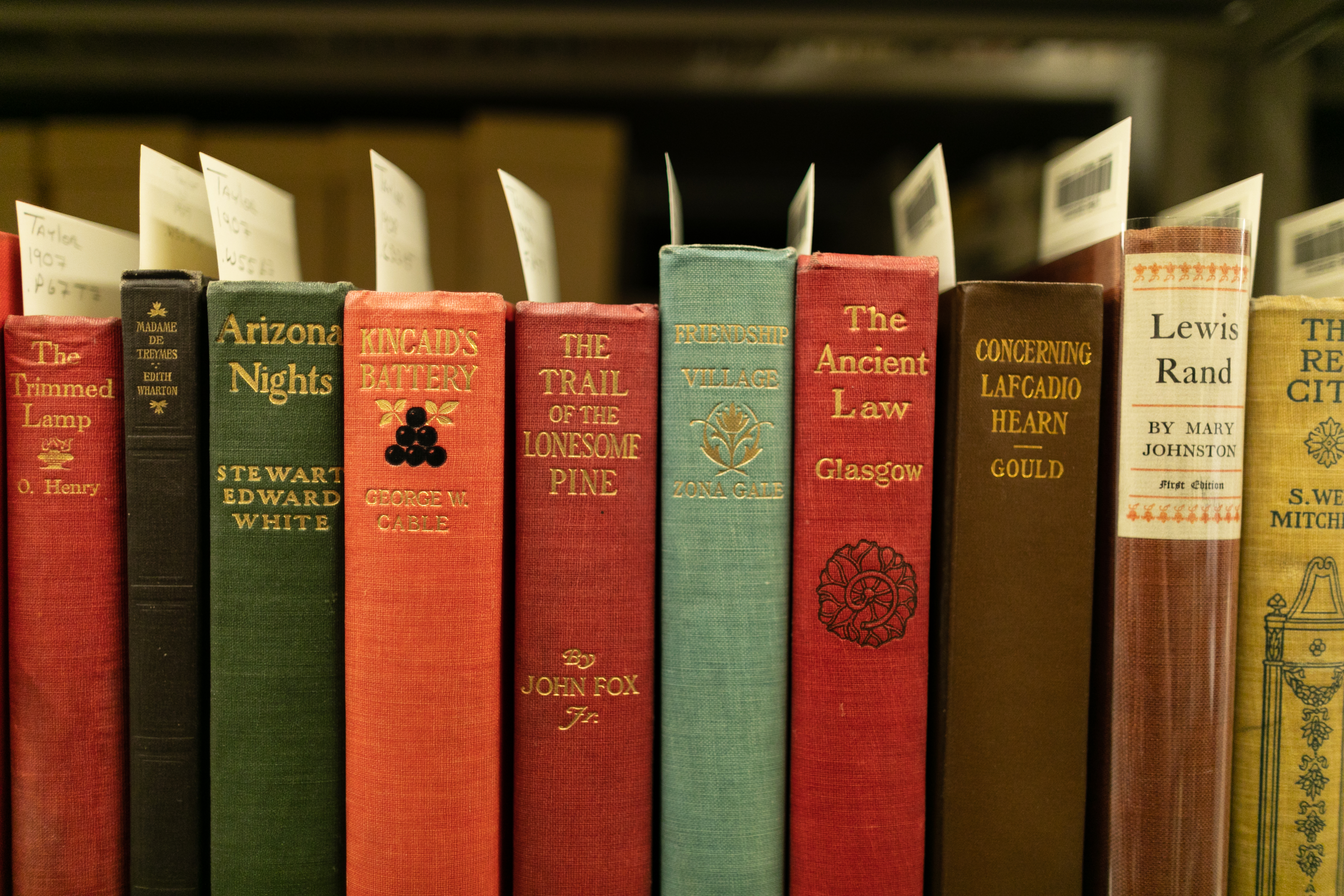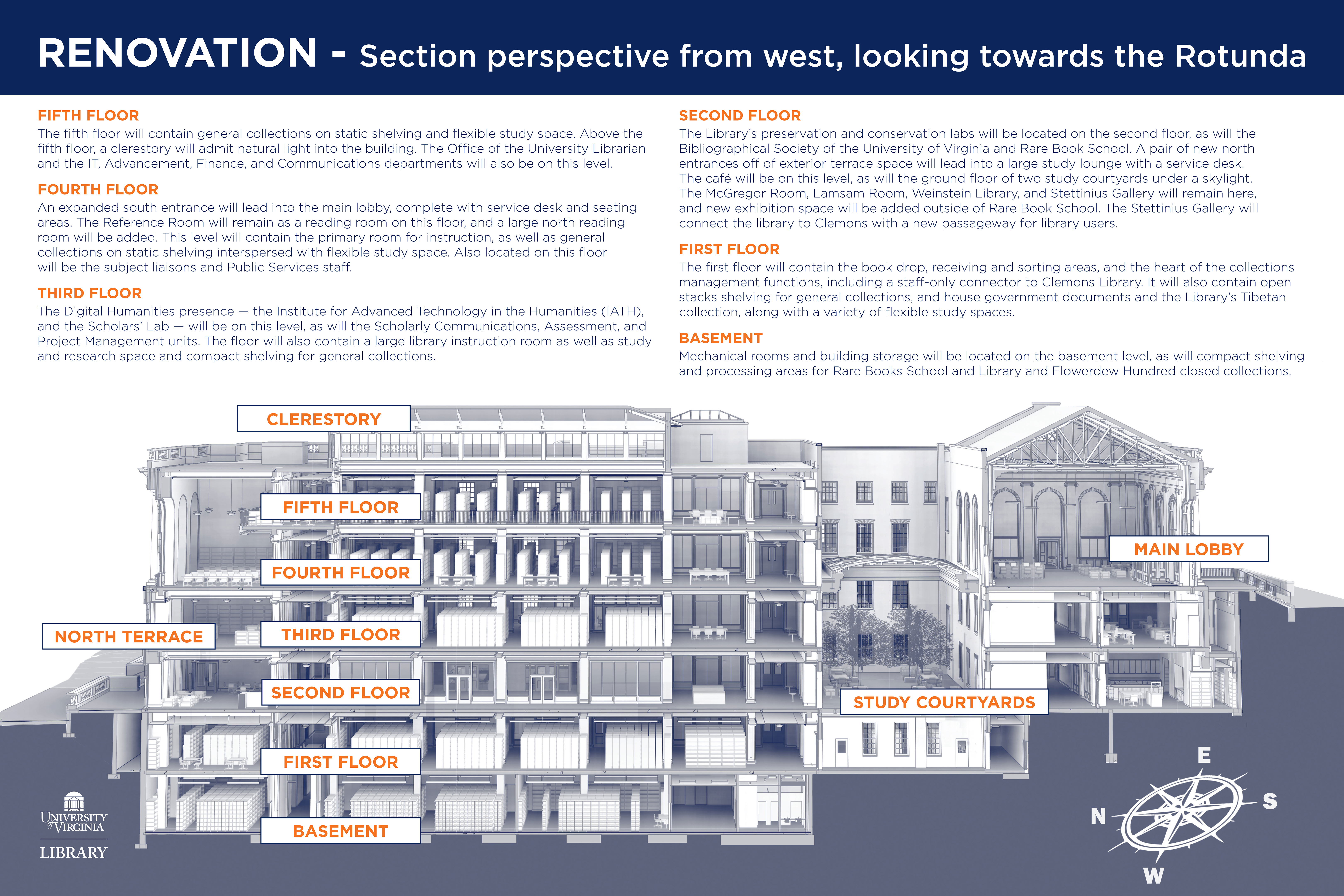UVA Library Renovates Research Access for Users

photo unavailable

photo by Amber Reichert
The University of Virginia's Open Publishing Librarian and Managing Editor for Aperio, Dave Ghamandi and UVA's Director of Information Policy, Brandon Butler discuss the research innovations occurring during the main library renovation on UVA Grounds.
As we write this, the main library at the University of Virginia is undergoing a major, once-in-a-generation renovation, updates designed to make the building more sustainable and better adapted to the needs of a 21st Century university (see renovation cutaway view at bottom of page). Like any major change, the renovation is disrupting our routines and shifting the way we do our jobs, in both the short and the long term. Like the library building, research itself is undergoing massive changes, from the way scholars collaborate to the way they publish their conclusions and share their data. We’d like to share how librarians like us are working to help our campuses weather these changes and develop systems and approaches that are more sustainable and better adapted to the future of research.

One part of that work is changing the way we and our researchers deal with the existing set of publishers, research funders, and others who shape our work. The Library’s Sustainable Scholarship initiative is examining these legacy systems and looking for ways to make them more affordable, more efficient, and more just. With peer institutions around Virginia and around the country, we are using powerful new data tools to identify the commercial publishers who are overcharging us for access to resources that don’t contribute enough to our research, and we are renegotiating those deals to save valuable research dollars. We are investing in new resources that feed cutting-edge, interdisciplinary work aimed at the toughest problems society faces, from COVID-19 to preserving and strengthening democracy. At the same time, we are helping faculty learn more about their rights to make their own work freely available online, ensuring our public university truly serves the public.
The Library is also shaping the direction of research and scholarship through its open access press—Aperio. This library operation has been publishing peer-reviewed, high-quality work since 2018 and steadily continues to grow. All Aperio publications are open access, which means they are freely and immediately available online at the time of publication with little to no copyright restrictions. In other words, the research and scholarship we publish are available to a global audience to download, read, share, and build upon at no cost. This is in stark contrast with traditional methods of scholarly publishing which produce expensive paywalls. We believe that everyone, not just those within well-resourced universities, should be able to access and read the latest research and scholarship. With Aperio, the Library has developed an innovative publishing program that allows alumni, parents, friends of the University, and others to read discipline-leading publications which they may not have otherwise been able to previously.

The core of Aperio is our journal program, which features UVA faculty and student editors (for example, the Journal of Modern Philosophy and the student-run Essays in History). We can also make other digital publications open access, as seen with The Public Domain Song Anthology. This open educational resource is a songbook consisting of nearly 350 popular, folk, and jazz songs in the U.S. public domain. People inside and outside of academia can use the songbook for both study and performance with the assurance that they aren’t violating copyright. The songs are also available in multiple file formats to encourage reuse and remixing. Even though Aperio is a small press, we’re demonstrating the changes that are possible in scholarly publishing.
Change is never easy, but sometimes change is necessary. Renovation means closing the main library for a time and temporarily losing access to a space we all cherish, but it also means ensuring that the building evolves and improves to serve the University well for its next century. Furthermore, changing the way we produce, share, and acquire information is not going to be easy, and it may even be uncomfortable for some, but only by reforming scholarly publishing to be more equitable, affordable, and accessible can we continue to serve our public service mission.

Reference Links: Journal of Modern Philosophy, Essays in History, The Public Domain Song Anthology, Think you can guess how expensive research really is? Try the Library’s new budget quiz!
- Abraham Lincoln on Character, Leadership and Education
- Silence is Golden: Celebrating the History of Silent Films
- A Revolution in the Air: The Wright Brothers Take to the Sky on December 17, 1903
- UVA Club of Middle Tennessee: UVA vs Ohio State Pre-Game Social
- UVA Club of Greater Orlando: UVA vs. Stetson Baseball Pre-Game Celebration
- Virginia Club of New York x The Essay Conqueror: The College Essayscape